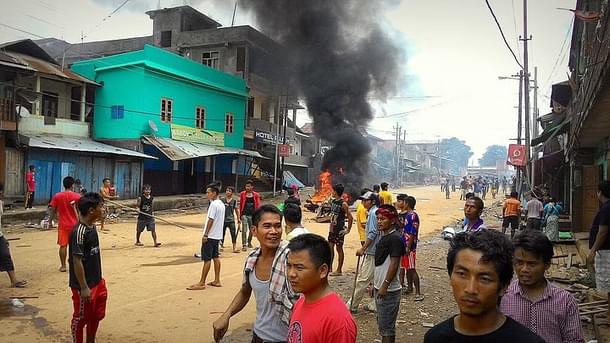News Brief
Manipur: Centre Asks State To Examine Delisting Of "Nomadic Chin-Kuki" From Scheduled Tribes List
Nayan Dwivedi
Jan 09, 2024, 12:03 PM | Updated 12:03 PM IST
Save & read from anywhere!
Bookmark stories for easy access on any device or the Swarajya app.


In a significant development, the Union Tribal Affairs Ministry has directed the Manipur government to examine a representation requesting the removal of "Nomadic Chin-Kuki" from the scheduled tribes (ST) list in the state, as reported by The Hindu.
The representation, submitted by Maheshwar Thounaojam, National Secretary of the Republican Party of India (Athawale), calls for a reconsideration of the ST status of certain communities.
It's important to note that the state has witnessed a series of representations throughout the year, with Meitei groups seeking inclusion in the ST list.
Also the ethnic conflict between the Meitei and Kuki-Zo tribes in Manipur since May 2023 has created complexities around the issue of tribal classifications.
However, this marks the first instance of a representation advocating the exclusion of the Kuki and Zomi tribes from the list, citing concerns about their indigenous status.
The Union government's response, dated 26 December 2023, indicates that the process of inclusion or exclusion from the ST list requires the proposal to originate from the concerned state government.
The ongoing conflict, triggered in part by discussions around the ST status for Meiteis, has claimed nearly 200 lives, left hundreds injured, and displaced tens of thousands of people.
Thounaojam's representation relies on a supreme court judgment from January 2011, suggesting that "all scheduled tribes (Adivasis) shall be original inhabitants of India."
He argues that, based on this judgment, Kuki and Zomi tribes do not qualify as scheduled tribes in Manipur as they are not considered original inhabitants.
In response to this the Union Tribal Affairs Ministry has urged the Manipur government to review the representation and provide its recommendations.
The criteria for declaring communities as STs, established by the Lokur Committee in 1965, include primitive traits, distinctive culture, geographical isolation, shyness of contact, and backwardness.
Thounaojam contends that certain entries in Manipur's ST list, such as "Any Mizo (Lushai) tribes," "Zou," and "Any Kuki tribes," lack specificity and may allow for the inclusion of illegal immigrants and refugees.
The representation raises concerns about the potential misuse of ambiguous tribe names, advocating for more precise identification of tribal communities.
As Manipur grapples with identity-related conflicts, the scrutiny of ST classifications adds a layer of complexity to the ongoing discussions on ethnic and tribal issues in the state.
Also Read: UP Economy In Its Best Shape, On Track To Achieve $1 Trillion Economy Target: CM Yogi
Nayan Dwivedi is Staff Writer at Swarajya.





